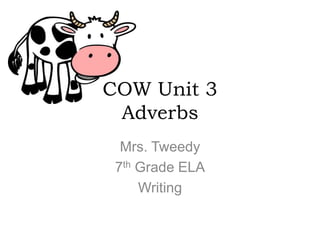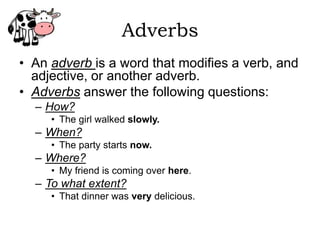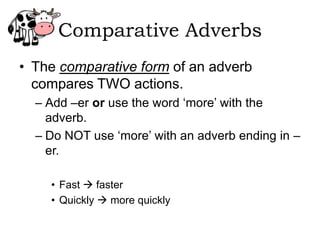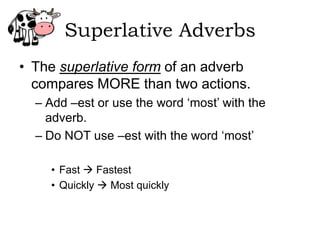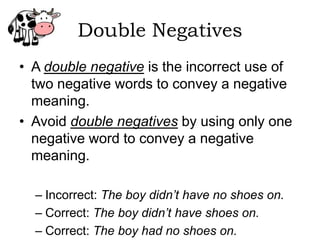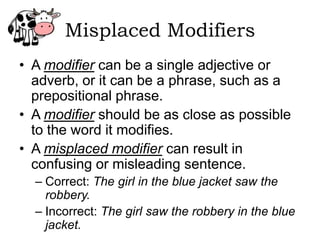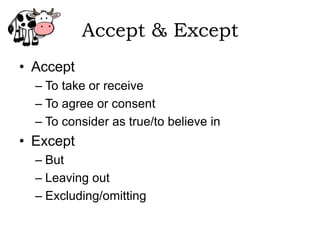COW Unit 3
- 1. COW Unit 3 Adverbs Mrs. Tweedy 7th Grade ELA Writing
- 2. Adverbs âĒ An adverb is a word that modifies a verb, and adjective, or another adverb. âĒ Adverbs answer the following questions: â How? âĒ The girl walked slowly. â When? âĒ The party starts now. â Where? âĒ My friend is coming over here. â To what extent? âĒ That dinner was very delicious.
- 3. Comparative Adverbs âĒ The comparative form of an adverb compares TWO actions. â Add âer or use the word âmoreâ with the adverb. â Do NOT use âmoreâ with an adverb ending in â er. âĒ Fast ï faster âĒ Quickly ï more quickly
- 4. Superlative Adverbs âĒ The superlative form of an adverb compares MORE than two actions. â Add âest or use the word âmostâ with the adverb. â Do NOT use âest with the word âmostâ âĒ Fast ï Fastest âĒ Quickly ï Most quickly
- 5. Double Negatives âĒ A double negative is the incorrect use of two negative words to convey a negative meaning. âĒ Avoid double negatives by using only one negative word to convey a negative meaning. â Incorrect: The boy didnât have no shoes on. â Correct: The boy didnât have shoes on. â Correct: The boy had no shoes on.
- 6. Misplaced Modifiers âĒ A modifier can be a single adjective or adverb, or it can be a phrase, such as a prepositional phrase. âĒ A modifier should be as close as possible to the word it modifies. âĒ A misplaced modifier can result in confusing or misleading sentence. â Correct: The girl in the blue jacket saw the robbery. â Incorrect: The girl saw the robbery in the blue jacket.
- 7. Accept & Except âĒ Accept â To take or receive â To agree or consent â To consider as true/to believe in âĒ Except â But â Leaving out â Excluding/omitting

